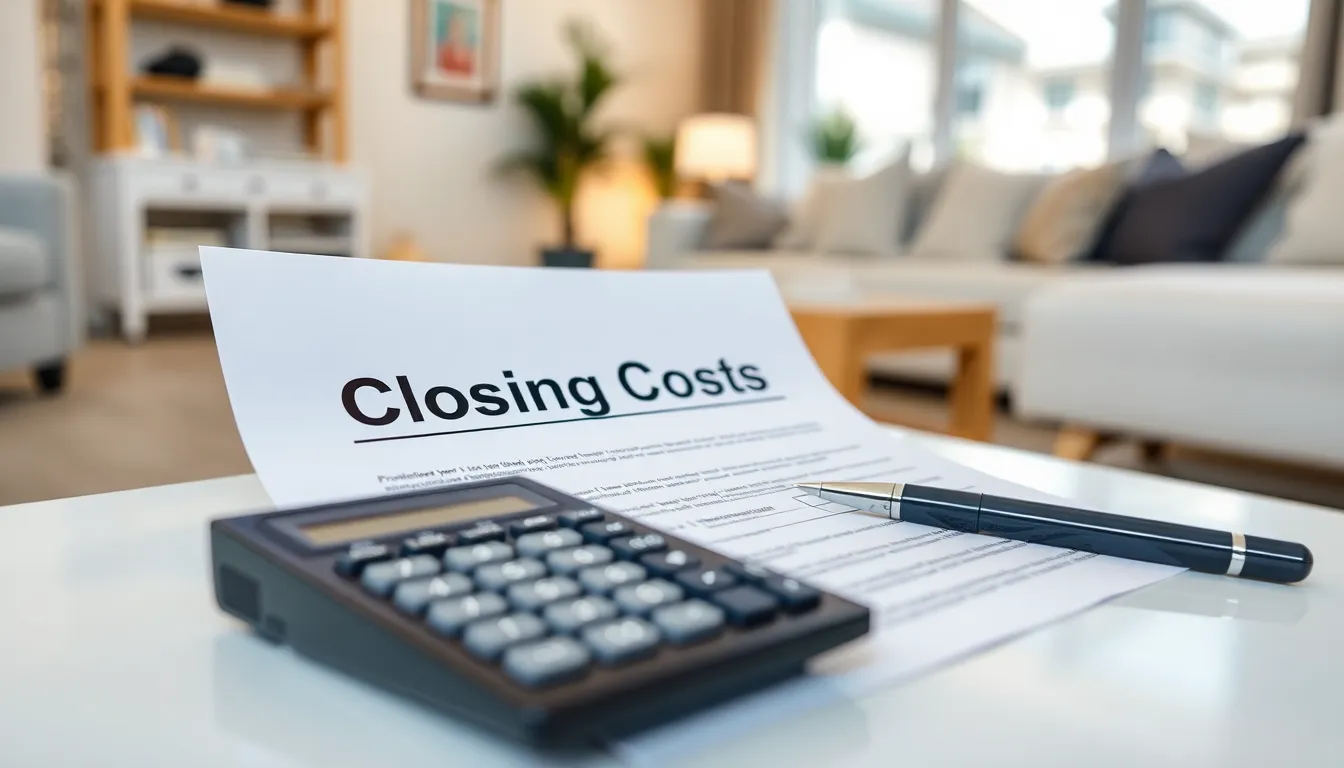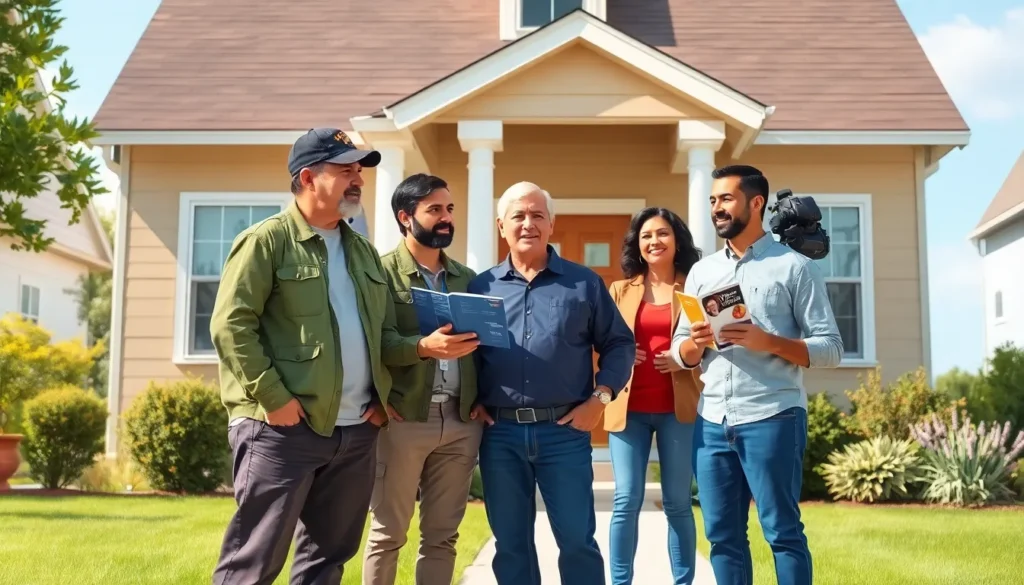Navigating the world of home loans can feel like trying to find a needle in a haystack, especially when it comes to VA loans. They’re often touted as the superhero of mortgage options for veterans, but what about those pesky closing costs? Are they lurking in the shadows, waiting to pounce on unsuspecting buyers?
Table of Contents
ToggleUnderstanding VA Loans
VA loans offer veterans a unique opportunity to secure financing for their homes without the typical constraints of conventional loans. These loans, backed by the Department of Veterans Affairs, provide numerous advantages tailored to the needs of service members.
What Are VA Loans?
VA loans are mortgage options specifically designed for veterans, active-duty service members, and eligible survivors. These loans don’t require a down payment, making homeownership more accessible. Qualifying borrowers must possess a valid Certificate of Eligibility to access these benefits. Loan limits vary based on property location, but generally, they allow for substantial financing with competitive interest rates.
Benefits of VA Loans
Significant advantages accompany VA loans. No down payment requirement makes these loans attractive. No private mortgage insurance saves borrowers additional costs. Competitive interest rates lower monthly payments, making homeownership more affordable. The ability to finance closing costs within the loan amount further eases financial strain at purchase. Flexible credit requirements help individuals with varying credit histories qualify.
Do VA Loans Have Closing Costs?

VA loans do entail closing costs, but they often differ from those associated with conventional loans. Understanding the specific types of closing costs involved is vital for borrowers.
Types of Closing Costs Associated with VA Loans
VA loans include several charges, such as appraisal fees, title insurance, and recording fees. Appraisal fees typically assess the property’s market value, ensuring it meets VA standards. Title insurance protects against potential disputes over property ownership. Recording fees are necessary for filing the property deed with local authorities. Additionally, a funding fee, required for most VA loans, can be financed into the loan amount. Understanding these elements helps borrowers prepare for the total costs involved.
Who Typically Pays Closing Costs?
Borrowers usually cover closing costs for VA loans, although sellers can negotiate to pay part of these expenses. Customarily, buyers may assume primary responsibility, yet VA loans allow for flexibility in payment arrangements. Some veterans might opt to roll closing costs into the loan amount. Lenders may also offer assistance through special programs or concessions. Negotiating these details often occurs during the purchase agreement phase, potentially easing the financial burden on the buyer.
Ways to Reduce Closing Costs on VA Loans
Reducing closing costs on VA loans can significantly ease the financial burden for homebuyers. Several strategies exist to help manage these expenses effectively.
Negotiating with Sellers
Buyers should actively negotiate with sellers to cover some or all closing costs. Sellers may agree to this arrangement, especially in a buyer’s market where competition is lower. It’s common for buyers to include a request in the purchase agreement, making it clear upfront. Effective negotiation can lead to a substantial reduction in out-of-pocket expenses. Moreover, offering a slightly higher purchase price can incentivize sellers to contribute to closing costs. Flexibility in negotiations is key, as it opens doors for creative solutions among parties involved.
VA Loan Funding Fee Considerations
The VA loan funding fee is a crucial aspect of closing costs that buyers must understand. Fees typically range from 1.4% to 3.6% of the loan amount, depending on the borrower’s usage and service history. Buyers can finance this fee within the loan, reducing immediate cash outlays. Considering the funding fee as part of the loan amount allows buyers to spread the cost over time. Additionally, some veterans with service-related disabilities qualify for an exemption from this fee, which can further minimize expenses. Analyzing these considerations helps in making informed financial decisions about VA loans.
VA loans offer a unique pathway to homeownership for veterans and active-duty service members. While closing costs are part of the equation, they can be managed through various strategies. Buyers should take the time to understand these costs and explore options like negotiating with sellers or financing them within the loan. By being proactive and informed, veterans can navigate the closing process with confidence, ensuring they make the most of their VA loan benefits. This approach not only eases financial strain but also paves the way for a successful home purchase.







